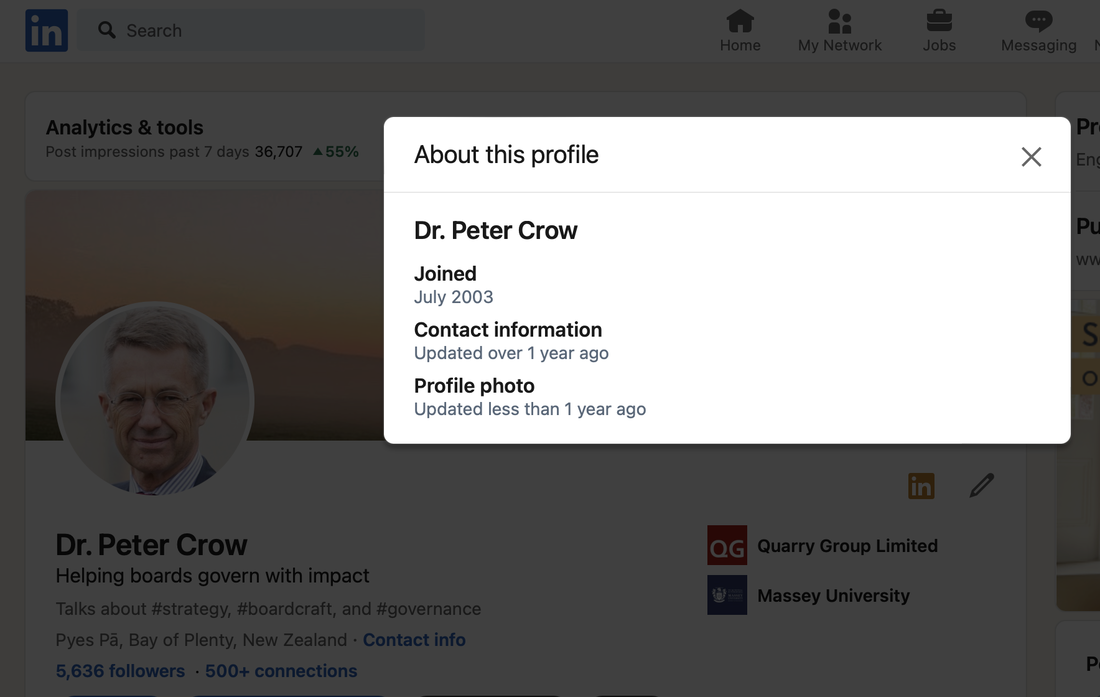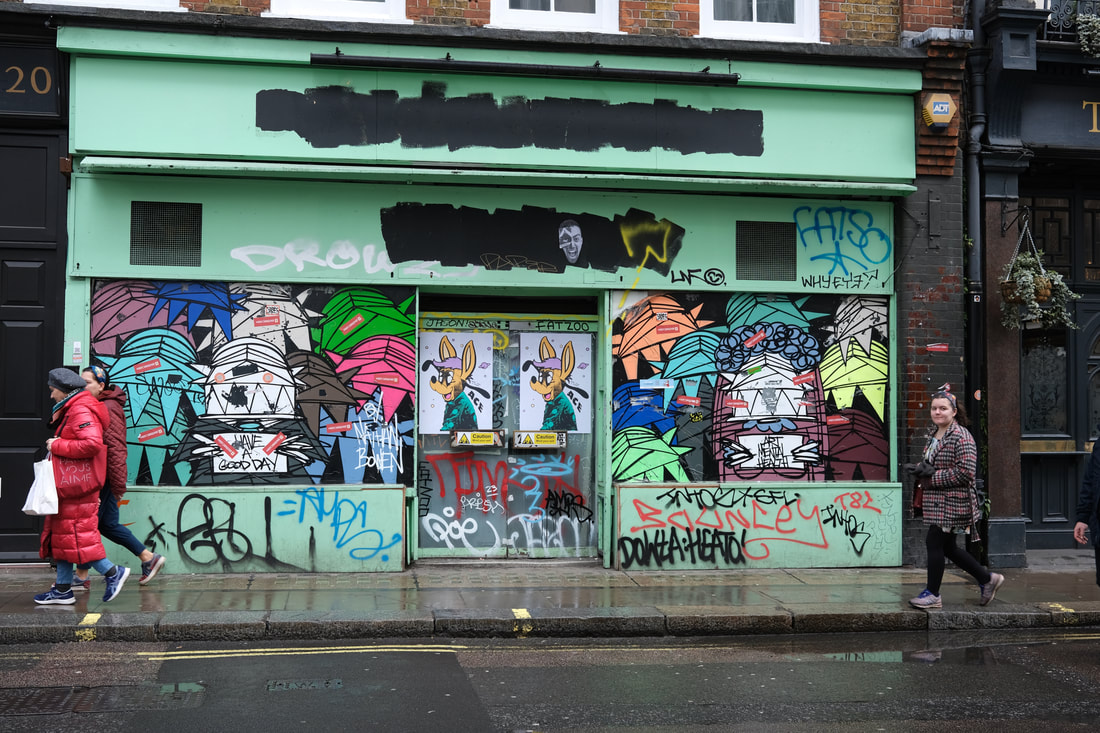|
Questions of where we came from, why various things happened or evolved as they did, and what we can learn from them to guide us as we live our lives fascinate many people—me included. From neo-lithic henges and stone circles, to the development of more recent industrial-scale enablers (notably, the wheel, the printing press, manufactories, the motor car and the Internet), man has long been fascinated with history, innovation and possibility. When we ponder historical developments and innovations such as the examples noted here—and other foundational things like language, writing, mathematics, ethics and civics—we gain insight to apply in our daily lives or use as a springboard to try to make new discoveries. This maxim applies personally, in family and social groups, and more broadly in society—and if we ignore it, it may be to our peril. The idea of learning from those who have gone before us is applicable in organisations too. How else would individuals and teams know what to do? This is what learning and development departments organise, and why professional development programmes exist. In the realm of boards and boardwork, relevant questions include three I have been asked most often over the past two decades: What is corporate governance; what is the role of the board; and, how should governance be practiced? That these questions are asked so often suggests directors (at a population level) lack the knowledge needed to be effective. Helping directors and boards govern with impact is a calling for me, so when Mark Banicevich invited me to explore the history of corporate governance—well, make a fleeting visit across a few high points in the Western context—I jumped at the chance. Hopefully, the commentary is helpful. Do let me know whether you agree or disagree with the various perspectives, and why, because I’m no Yoda (use the comment section below, or contact me directly). Life is a learning journey for me as well!
0 Comments
Boards, and an oft-mentioned but mysterious concept—governance—are topical. Daily, it seems, these terms feature in our newspapers and on social media, usually because something has gone wrong. And when it does, the chattering class is not slow to react. Typically, the targets of their comments are the board and management of the organisation. That seemingly strong organisations suffer significant missteps—or even, fail outright—on a fairly regular basis is worrisome; the societal and economic consequences are not insignificant. What can be done? Recently, the inimitable Mark Banicevich invited me to discuss boardroom success and failure, and to offer guidance that boards wanting to lift their game may wish to consider. Hopefully, our discussion is helpful and enlightening. Regardless, I welcome questions and comments, either here or send me an email. This is my second conversation with Mark (the third will be published in May). If you missed the first, you can access it here: Governance around the world. When I was a boy, milk was free (I was raised on a dairy farm), but you could buy it in a glass bottle with a silver foil top (pasteurised but not homogenised) for four cents a pint at the general store. Television (once we got one, in 1969, to see the Apollo 11 moonshot) was a grainy, black-and-white experience, with a single channel available. You got to watch whatever the broadcaster chose to deliver across the airwaves. Now, milk costs several dollars a litre, but it comes in many different styles (blue, light blue, skim, lo-fat, full-cream, calcium fortified, lo-lactose and UHT—as well as products called milk that contain no milk at all, such as oat milk and almond milk, in a wide variety of packaging options). Television has changed too: from a take it or leave linear broadcast experience via rabbit-ear antennae, to a plethora of video-on-demand (streaming) options via the internet. These are but two of thousands of examples that illustrate the onwards match of technology. Oh how life has changed, even in my lifetime. The onward march has also affected the way we communicate, not only personally with family and friends, but also with clients, suppliers and the general public as well. The notion of using a fountain pen to handwrite a letter, or making a toll call, seems quaint now—but some of us still value these moments. The emergence of social media has extended our reach in ways not thought possible twenty years ago. Sharing business cards, once commonplace, is now rare. If people want to contact me or learn about me, they tend check my LinkedIn profile (notice the assumption, that I have one), even before mentioning Google or asking about a website or blog. And that brings me to the point of this muse, which is to share one aspect of a conversation with an esteemed company director, in the hope it might encourage others committed to serving the director community. Yesterday, I was asked about the role of social media in my business life, what channels I use and how long had I been using these. The first two questions were readily answered; the third took a little longer—because I needed to find the menu option!
Thank you for permitting me to share my experience. I hope anyone considering using social media or a blog as a channel might be encouraged—not only to do so, but to stick at it over the longer term. My journey to date has been fulfilling; I have met thousands of people from many walks of life and, I hope, they have valued the interaction as much as I have.
Diversity of thought has been widely promoted in recent times, as a mechanism to supposedly increase decision quality in boardrooms. Superficially, the idea of thinking differently is a positive evolutionary development from earlier efforts (think: women on boards) to break what is often described as the Old Boys' Club. That the discourse and intent has begun to move beyond appointing directors on the basis of physical attributes is helpful. And yet, the idea of 'diversity of thought' has long troubled me. How does anyone know what I am thinking, or anyone else in the boardroom for that matter? And what is diversity in this context anyway—me having different thoughts, or several of us thinking differently? Crucially, what of any link to the board's work and purpose, which is to provide steerage and guidance to achieve a strategic goal? Researchers have published correlations based on specific datasets, but the general case (a reliable linkage between demographic diversity and organisational performance) remains elusive. The somewhat amorphous 'diversity of thought' is similarly afflicted. Recently, cognitive diversity (that is, different ways of processing information and approaching problems) has been suggested as a more reliable mechanism to achieve higher quality decisions and, by implication, outcomes. This sounds positive, but reliable explanations are yet to emerge. Why is this so hard? Could the paucity of reliable explanations (of the relationship between board work and company performance) be due to researchers, directors' institutions and others trying to explain board work and develop 'best practice' models looking in the wrong place or using inappropriate tools? What if hypothetico-deductive techniques (in search of a deterministic best practice approach to some aspect of board work) are laid to one side and methods more common in social science used (critical realism or contingency theory, for example)? Should researchers embrace the idea that boards are social organisms, and that governance is a mechanism activated by the board? For the record, I employed critical realism, long-term observational techniques and contingency theory when researching boards a decade ago, as part of my doctoral research. The study was ground-breaking for it revealed new insights about board work including an explanatory framework. If you want to learn more about this study, check my thesis (academic-speak) or this article (plain-speak). In the past few weeks, I have picked up the question again (thanks to a wandering mind on long haul flights!), and have begun to wonder if fractals and chaos theory might offer a viable pathway to developing a theory of board work. Whether this might be a fruitful search or a blind alley remains unclear. Regardless, my mission is to help boards govern with impact, so the least I can do is dig further. And dig I shall. One request: If you know about fractals, or know of anyone who possess such expertise—especially in relation to social phenomena—could we schedule a call please? I'm starting from a pretty low base!
And there you have it: before many of us realised, the solar equinox has passed once more—that moment when the sun passes the celestial equator and winter (or, for those in the global south, summer) beckons. The equinox also signals the recommencement of on-the-ground contributions in the Northern Hemisphere. To wit, I shall be in the United Kingdom and Switzerland soon—from 2nd through 13th October, in fact. My programme sees me in London, Leeds, Cambridge, Zurich and St. Gallen, for a variety of contributions:
I am looking forward to hearing the heartbeat of company directors, advisors and others, to understand recent developments and emerging trends, and to discern changes since I visited earlier this year. I have intentionally held space available for a few informal meetings. So, if you want to meet up while I am in your neighbourhood—be it to discuss the work and impact of boards, corporate governance, or some other topic of interest—do get in touch. I would be delighted to hear from you.
I have just arrived back in New Zealand, from ten days in the UK and Europe. My meetings with directors, advisors, academics, students and directors’ institutions had two primary objectives: to listen and to share. The listening aspect was to gain firsthand knowledge of issues and opportunities; the sharing aspect to provide updates on the craft of board work and my experiences as a practicing director. Learnings (a few immediate observations, in no particular order):
Amongst it all, there were some gems:
Several followup visits are now being planned, to advise, assess, educate and speak on topical board and organisational performance matters. If you want to discuss a matter of interest, or check my availability to assist, contact me for a confidential, obligation-free discussion. The headline picture, showing a derelict property in Soho, London, is analogous to the state of governance in many places in Europe: structurally sound but outwardly messy.
This entry is a little more personal than most posted here. But, if you'll allow the indulgence... Yesterday started out like many others before it: a mix of client and administration work, video calls across timezones, director commitments and writing (The craft of board work is coming along nicely). I 'logged off' a little later than usual—around midnight—having just completed a two-hour video call with members of the Global Peter Drucker Society (advance planning for the 2022 edition of the Global Peter Drucker Forum to be held in Vienna late this year). Tired but satisfied after a long day, I prepared for bed. And as I did, my mind wandered. March 24th was significant for some reason. Then I remembered; it was Musings' birthday! Yes, ten years ago, on 24 March 2012, I stepped, with some trepidation, into the blogosphere. That first step? A three-line post. My motivation was straightforward, to share thoughts and test ideas on corporate governance, strategy and board effectiveness. At the time, I had just started on my doctoral journey (a milestone achieved in 2016). A platform to engage with academics and global leaders—and to let off steam from time to time—was going to be helpful, I thought. And so it was, and continues to be. Today, some 712 posts later, Musings has entered middle-age. From tentative first steps, to now a library of comments on professional (corporate governance, strategy, and the craft of board work), philosophical and personal topics. Whether the thinking underpinning the articles has improved over time or not is for readers to determine. Hopefully, a progression is evident. And, while the frequency with which posts have appeared has declined a little in recent years, my desire remains as it was in 2012: that each post proved valuable to at least one person. If that was achieved, the effort was worthwhile. Looking back over the decade, I have been most fortunate to have met and learned from many great thinkers, leaders and doyens of corporate governance and strategy. I have also had the privilege of serving aspiring and established directors, and boards, across five continents. Musings has been an enabler. The support and encouragement shown as I have pursued my passion—to help boards realise the potential of the organisations they govern—has made a great difference to me. Hopefully, it has been beneficial to others as well. Thank you. And, in case you are wondering, Musings, will continue to be published, for as long as readers show interest.
In 1960, Jane Goodall, a trailblazer in the field of primatology, visited the Gombe Stream National Park in Tanzania to study chimpanzees. And so began a 60-year study of chimpanzee social interaction. The study was groundbreaking; revealing new insights about chimpanzee behaviour and interaction. Goodall observed directly, for the first time, human-like behaviours in chimpanzees. These included toolmaking (albeit rudimentary) and armed conflict between competing individuals and groups. Consequently, humanity's understanding, of both chimpanzees and itself, changed. Some centuries earlier, Copernicus produced insights about the transit of planets; specifically, that the planets have the Sun as a fixed point around which they orbit. This observation undid conventional wisdom, which held that the Earth was the hub around which other bodies orbited. Later, Kepler explained the observations. These examples illuminate the value of long-term direct observations of dynamic entities, especially groups of entities, to achieve more accurate understandings of not only the entities, but their actions and interactions. The principle holds in contemporary society. Sociologists and anthropologists, for example, have long seen the importance of observing social groups first hand (long-term ethnographic studies, sometimes involving full participation) to gain insights that might lead to more complete understandings and explanations of group dynamics, and the impacts and consequences of group action and interaction. Moving now to consider a subject of great personal interest: boards and governance. How do boards work, and what are the characteristics of an effective board of directors? Can, and if so how, boards influence company performance? And how might one go about finding out? To date, the predominant approach to tackling these questions has been to apply scientific principles, in search of linkages between attributes of boards and company performance. But this enquiry has raised yet more questions. For example, can a comprehensive understanding of the function, interaction and impact of boards be gained by studying isolated attributes of boards, such as the number of directors, independence, 'diversity', or other static attributes, all from outside the boardroom? Or by applying statistical methods to search for regularities (or differences) in publicly available data? Or by interviewing or surveying directors and/or managers about their perceptions about the conduct or behaviours of directors during board meetings? Enquiries utilising these approaches have produced thousands of research papers and published articles. They have been helpful in so far as they have provided clues about what may or may not be material to identifying the characteristics of high performing boards and the impact of boards on company performance. But the basis of these studies is not as it first seems. These are not studies of boards in action, they are studies based on representations of specific attributes associated with boards, not actual data about the board going about its work—just as the headline picture looks like a pair of giraffes but they are representations, not giraffes. A small but burgeoning group of researchers have taken a different approach. Invoking Goodall, they have completed long-term observation studies of boards of directors going about their work (i.e., the researcher in the board room, silently observing the board in session, over an extended period to move beyond the behaviour modification that naturally occurs when someone or something arrives in the environment). To date, fewer than a dozen studies have been published. These studies have produced insights that are somewhat different from those produced by remote studies of isolated attributes of directors and boards. In particular, the importance of certain director capabilities, board activities (tasks) and director behaviours is highlighted. Static attributes, such as board structure and composition, seem to be far less relevant. So, two different approaches, and two different sets of conclusions. That is perhaps not unexpected. But it does leave a rather awkward question—the same as that faced by Kepler, Copernicus and Goodall, and others who have reached observation-based conclusions that have differed from conventional wisdom. Might the small group be on to something? And, if so, might the majority (in this case, business school academics, regulators, institutions, governance consultants) be prepared to set conventional wisdom aside, to pursue a different understanding of how boards can influence the performance of the companies they are charged with governing?
December is a significant month for many peoples around the world. It is the month in which two of the three great Abrahamic faiths have a major festival (Jews, Hannukah; Christians, Christmas), and the Japanese observe Omisoka. For others not professing a faith, December is significant to the extent that it marks the end of the Julian calendar. Each of these observances is distinctive, but a common thread runs through them: celebration and dedication. Yes, December is a time to reflect on the year gone and give thanks, and to ponder what lies ahead. Through this muse, I too wish to give thanks, to the many board directors, business leaders and students that I have had the good fortune to work with during 2021—both in person in New Zealand, and via video link in the United Kingdom, the European Union, the Caucasus region, North America and the Caribbean, India, several African and Middle Eastern countries, and closer to home in Australia. I have learnt a lot, and hope others have derived value from the interactions. Thank you. Peering into 2022, the prospect of travelling internationally to work in person with boards and students is enticing. Once the coronavirus situation stabilises, border restrictions are relaxed and travel becomes viable again, I will accept bookings. But in the meantime, I have decided to take on a new project. For over two decades now, I’ve had the privilege of working with aspiring and established directors on five continents, helping them wrestle with problems, consider opportunities, make decisions and learn what it means to be an effective director. Over the same period, two friends have encouraged—even nagged—me to consolidate my ideas, experiences and insights into a book. And each time it has been mentioned, I have pushed the idea away, citing lack of head space. But circumstances have changed in 2021 and the time now seems right to reconsider the prospect of writing 50,000 words about governance and the craft of board work. So, that is what I will attempt in 2022. (*) The image shows the Marsden Cross, which marks the location of the first Christian mission settlement in New Zealand, and the spot Samuel Marsden preached the first Christian service, on 25 December, 1814.
As summer gives way to autumn in the Northern Hemisphere—and soon winter—so various externalities that frame the work of boards and enduring performance of companies continue to press in. Topical externalities include climatic change; shifting geo-political forces; technological disruptions; diversity, equity and inclusion demands; ever-increasing levels of regulation; the emergence of ESG; and, stakeholder capitalism. The challenge for all directors and boards, whether they acknowledge it or not (or even notice or care!), is to respond well in the face of what is patently a dynamic environment—to ensure the fiduciary duty they accepted when agreeing to serve as a director is fulfilled. Steerage and guidance—the essence of corporate governance—requires every director, and the board collectively, to be alert, to both set a course and to respond well in the face of externalities. The mind’s eye needs to be looking ahead, to ensure the reason for the journey remains clear, and that decisions are made in the context of advancing towards the objective. Quite how that should be achieved is the underlying question that has driven my life’s work. Following an extended break from writing—a consequence of dealing with the passing of our patriarch—I have ‘arrived’ back at my desk to think and write again, about organisational performance, governance, strategy and the craft of board work. If you have a question, or would like to learn more about a particular aspect of board work or the impact boards can have on organisational performance, please let me know! If we are to journey far, we need to explore relevant topics and learn together.
|
SearchMusingsThoughts on corporate governance, strategy and boardcraft; our place in the world; and other topics that catch my attention. Categories
All
Archives
May 2024
|
|
Dr. Peter Crow, CMInstD
|
© Copyright 2001-2024 | Terms of use & privacy
|










